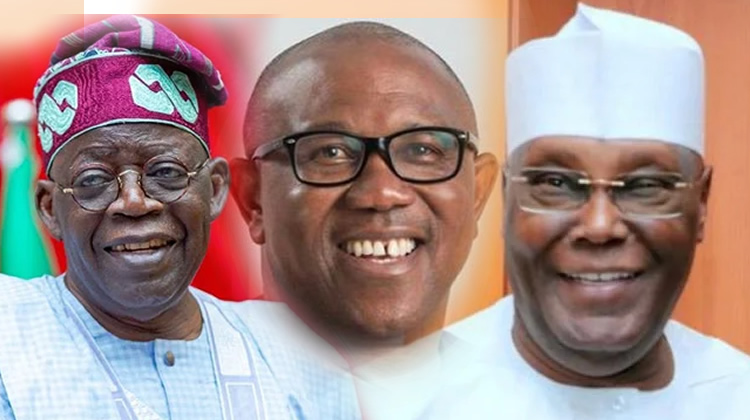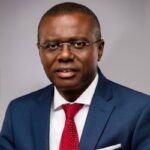By Ken Eluma Asogwa
A friend recently told me pointedly that Peter Obi would win the February 25th presidential election but he would not be the president of Nigeria. Reason? “He is Igbo; he’s Biafra”, my friend quipped. Admittedly, my friend agreed with me that Obi would make a better president than his two major opponents, especially given his past antecedents, but his being Igbo is a major dent on his chances, he restated.
When I probed further in trying to understand what was wrong with Obi’s ethnic background, my very good friend did not waste a second in reminding me about the events of 1966 and how it dovetailed into Peter Obi’s forebears wanting to leave Nigeria. According to him, it would be dangerous to entrust the presidency of Nigeria in the hands of an Igboman, let alone one who has not been ‘diluted’.
He went further to define a diluted Igbo as one who grew up in the North, speaks Hausa, and who would have lived amongst ‘northerners’ well enough to be trusted. He even cited Orji Uzor Kalu and Rochas Okorocha -two Igbo politicians who have spent considerable number of years in the North – as examples of Igbos who have earned the trust of the North to be supported to lead Nigeria, and not a certain Peter Obi who he claimed has never visited the North, let alone understanding their complexities.
My friend conveniently forgot that Peter Obi deputized Atiku Abubakar in 2019 and would have toured the entire 36 states in the process. Meanwhile, when I reminded him that Major Chukwuma Kaduna Nzeogwu grew up in Kaduna, spoke Hausa very fluently, and yet spearheaded a coup d’etat that led to the deaths of influencial ‘northerners’, he felt a bit disarmed.
That said, however, it would be facile for me to simply gloss over my friend’s apprehension with a possible Peter Obi presidency without allaying his fears of a plausible disintegration of Nigeria under his watch. I will clearly deal with that anxiety in one sentence so we can progress to the next level. Peter Obi cannot break up Nigeria because he doesn’t have the powers to do so, and even if he had the powers, he doesn’t have to, because it is not in the interest of his ethnic group to have a split Nigeria. Now, let’s flip to the events that succeeded the civil war, especially in juxtaposition with the progress, if any, we have made in the area of quality of our present day politics and quest for nationhood.
In 1979, just nine years after a bitter civil war, the three leading political parties in the Second Republic – NPN, UPN and NPP – respectively had Shagari/Ekwueme, Awolowo/Umeadi and Azikiwe/Audu on the ballot. The import of the above is that nine years after the Igbos attempted to secede from Nigeria, the region was still considered politically viable in the Nigerian political equation to the extent that the duo of Shagari and Awolowo considered it expedient to go for Igbo running mates in the election.
In short, Awolowo had to make the tough decision of going to the East for the choice of running mate at the expense of looking the way of the North. It is to be noted that a northern deputy would indeed have provided more balance – both in terms of regional, ethnic and religious balance – to Awolowo’s ticket, but he overlooked all that to go to the East. That was how far the protagonists of that bitter war were ready to go to ensure full reintegration of the Igbo into Nigeria’s political mainstream.
It is therefore very concerning that 44 years after the events of 1979, and about 53 years after the end of the civil war, the present day Nigerian politicians have sworn that the codes of that war must be reenacted. I shudder at the level of stigmatization and dangerous rhetorics coming out from the mouths of persons wanting to govern Nigeria today. Let’s face the facts, if Peter Obi fails to win the 2023 election, the reason is simply because he is Igbo. It’s shocking that in a race that has Tinubu and Atiku – the two most infamous Nigerian politicians today – Peter Obi would be struggling for acceptance. It speaks to the level of bigotry in our system.
I really don’t understand how Peter Obi, who was barely five years when the 1966 crisis began, should suffer the consequences of the events of that era. And it is befuddling seeing how some Nigerians are willing, albeit intentionally, to make the wrong choices just to avoid electing a credible leader from a detested tribe. Why must we cut our nose to spite our face? This is crazy!
While I have not set out to dress Peter Obi in any angelic robe, my point is that given the proven abysmal records of his present opponents in the coming election, it is only commonsensical that we try to find out if salvation could come through the Gentile who is the only one with the right messaging. We can’t continue like this. We can’t!
The United Kingdom has in the aftermath of the Brexit been faced with serious economic challenges that centred on poor leadership. They have tried Theresa May, Boris Johnson and Liz Truss, yet no headway. Common sense dictated to the British people that racism should take the back seat while they went in search of redemption for their country. And that was how Rishi Sunak, an Indian-British, was recruited to clean the mess left behind by the so-called British bloods. There is a wise saying that if you’re desirous of coming out out of a hole, the first wise decision is to stop digging. Nigeria is on the cusp of coming out of her hole only if it can stop digging, and the only realistic way of halting this drift is to vote in the right person on 25th February, irrespective of where he comes from.
While I understand that even the western world is today faced with the challenges of nationhood, ours cringes the ear with the way we go about it. While other societies make efforts to build nations out of how they were lumped together, we, in our clime, take pride in allowing centrifugal forces to take centre stage thereby making the hope of ever attaining nationhood a mirage.
If our redemption would come from the descendant of a people who once rebelled against the state; if it would come from the dark alleys of the East, please let’s forgive them and elect Peter Obi to help us fix Nigeria. Nigeria is hemorrhaging and will soon bleed to death if nothing is urgently done to treat the wound. Some of us who grew up in the post civil war Nigeria do not really understand why a nation would throw away her best on account of events that have nothing to do with us.
My generation has never seen the Nigeria that works. The people who are fanning the embers of bigotry in today’s Nigeria were beneficiaries of Nigeria that worked in the past. They would never cease to regale us with some nostalgic recollections of how they studied on scholarships ‘when Nigeria was good’; how Naira was more valuable than the United States dollars in the 70s/80s and how they paid N170 to fly to London on Nigeria Airways in the 70s and early 80s. They should allow us define our own future and stop confusing us. I nonetheless take solace in the fact that Peter Obi’s greatest strength lies in the energy of the Nigerian youths who are not listening to the fixated mindsets of their parents.
I will therefore end this piece by highlighting my most important takeaway from Olusegun Obasanjo’s admonition to the Nigerian youths in his 1st January, 2023 letter to the latter. He wrote: “Can we let the past go? I appeal to the young Nigerians to stop inheriting other people’s prejudices and enemies. Make your own friends and stop inheriting your father’s enemies.
“Let’s stop criminalising and demonising one another on the basis of the civil war on which we are all wrong. And let’s praise and thank God for preserving the oneness of Nigeria”.
*Asogwa, a lawyer and foreign relations expert, is the CEO of Afri Forecasts and can be reached via email @ k.e.asogwa@afriforecasts.com


